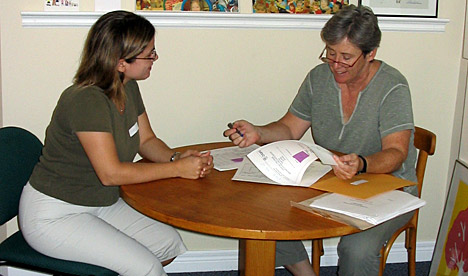
Developing a partnership with the family is very important when we share in the care of their child. We communicate with parents on a daily basis. We often talk about their child’s achievements, friends, or the things he particularly enjoys doing. We talk about how the child is settling in, our program, and the philosophy and goals of our service.
But how do we tell the family about the fact that their child is exhibiting bullying behaviour?
Remember that what we see as a problem may not be viewed this way by the family. This has significant implications for how we raise concerns with the family.
Once a concern has been identified, it is important to consider the needs of the children involved.
Understanding the family’s reluctance to hear the message
A family can react quite differently than expected to information about their child.
- You may have observed the bullying behaviour for some time, while it may be the first time the family has considered these concerns. Some parents may not find the behaviours you consider to be bullying as unacceptable. This may be due to their personality, parenting style, or cultural background.
- A family may also go into “threat” mode when approached about their child. The parents may see it as a criticism of their parenting skills.
- You may need to remind parents of your anti-bullying policy (if your centre has one in place). Give general examples of bullying behaviours and the resulting consequences before describing specific incidents in which their child was involved.
- Always maintain confidentiality when discussing specific incidents (i.e., do not disclose victim names).
Understanding your own reluctance to deliver the message
Why is it difficult to move from discussing what the child ate and with whom they played, to raising your concerns about bullying? Here are some possible reasons:
- You and your colleagues can feel threatened, too.
- You may not feel comfortable about the information you are reporting.
- You may not have established a good rapport with the family before you need to raise concerns.
Raising concerns
Before you raise concerns with the family, consider the following suggestions:
- Document any incidents of bullying.
- Talk to your colleagues about your concerns. You need to discuss the issues with your supervisor.
- Based on your centre’s anti-bullying policy (if you have one), determine who would be the appropriate person to talk with the family – perhaps the supervisor and yourself, or another team member.
- Talk to the family as soon as possible. If there are two parents/guardians, try to see them together by booking a meeting time that is convenient for both of them.
- Discuss your concerns with the family without the child being present.
- Timing is important. Allow adequate time for the meeting and provide a location that ensures privacy.
When meeting with a family, consider the following suggestions:
- Give the family examples of the child’s strengths and remember the importance of a positive approach when talking to a family.
- Plan ahead and think about what you are going to say. You may even wish to write it down before meeting with the family.
- Be prepared. Have concrete examples of your concerns and make sure that they are objective.
- Develop an action plan with the family about what to do next. Have some ideas ready to suggest to the family about what you will do in the classroom.
- Be prepared to consider what the family suggests, even if it is quite different from what you had in mind.
- Reassure the family that staff members are happy to work with them to achieve the best outcome for their child.
Though breaking the news can be difficult, it is important that the issue of bullying be raised as soon as possible.
